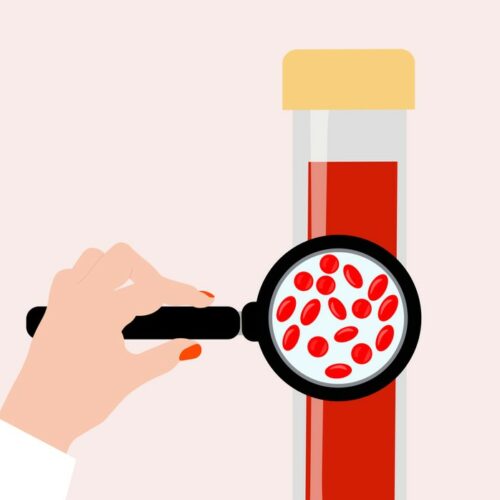
Let’s talk about fat. It’s the nutrient that seems to move in and out of favour faster than last year’s hot fashion fad. To cut through all the confusion, we sit down with nutrition expert Tim Crowe to find out what you need to know.
Q For years, we’ve been taught to fear fat, and that fat will make us unhealthy. Is this still the case?
Nutrition science is undergoing a seismic shift. Whereas it once focused mainly on nutrients, it has now become much more food-focused. The simple reality is we eat foods, not nutrients. If you get the foods right, then the nutrients will take care of themselves.
By focusing solely on fat, we lose sight of the various health effects of different types of fat, and the other nutrients found in food. No one ever eats ‘saturated fat’ — they eat a whole combination of different types of fat at one time. Even super heart-healthy olive oil contains a small amount of saturated fat. Our national dietary guidelines — and the Heart Foundations new dairy, egg and meat recommendations — address foods and their effects on our health, not nutrients.
Q A recent study found saturated fat and heart disease may not be so closely related. Is this study wrong?
Here’s why it’s important to focus on foods rather nutrients — and why scientific studies can result in different conclusions. When saturated fat is replaced by wholegrain foods (such as grainy bread, oats and wholemeal pasta), heart disease risk goes down. But replace the same saturated fat with highly refined carbohydrate foods ( such as white bread, processed cereals, biscuits), and the risk stays the same.
Likewise, replacing saturated fat with plant-based monounsaturated fat from foods like olive oil and avocados is associated with a reduced risk of heart disease. Whereas, if the source of monounsaturated fat you consume is animal-based, then no benefit relating to heart disease risk is seen.
If you’re confused, here’s a better way to think about all this. Focus on eating more foods that help cut the risk of heart disease, rather than just having a tunnel-vision focus on eating less of one nutrient such as saturated fat.
Q So, does eating saturated fat lead to high cholesterol and heart disease, or have we all been fooled?
It’s true that saturated fat raises cholesterol levels, particularly the more harmful LDL cholesterol. But it’s important to realise there are different types of saturated fat, and their effects on cholesterol differ. So, it’s complicated. This explains why even with the changes in cholesterol that sat fat consumption causes, sat fat does not always appear to lead to a greater risk of getting heart disease.
Q We know not all carbs are equal — rolled oats, for example, are much better for our health than cake. Is the same true for saturated fat? Is all saturated fat bad for you?
Just as all carbs are not the same, the same goes for saturated fat. Its the food ‘matrix’ the saturated fat is found in that is more relevant. The ‘food matrix effect’ means that the nutrient content of a food does not necessarily predict its health properties. There’s a big difference nutritionally in foods such as yoghurt and cheese compared to chocolate and potato crisps — yet they all contain saturated fat.
Q So, if I’m healthy, do I need to limit saturated fat?
It’s not so much just that saturated fat needs to be limited, rather that we should limit many of the discretionary foods that are high in it. A lot of saturated fat that the typical Westerner eats comes from cakes, biscuits, pastry, pizzas and other takeaway foods. When trying to reduce how much saturated fat you eat, the foods you replace it with are much more important. Eating more fruits, vegetables, whole grains and fewer foods high in added sugar will naturally displace less healthy high sat fat food from the diet.
Q Which is the best — full-fat or low-fat milk?
In Australia, the Heart Foundation has put full-fat milk is back on the menu. Not all other Heart Foundations have completely followed suit, at this stage, but there has, generally, been a shift away from prescriptive ‘low-fat’ advice for everyone, meaning it then comes down to your personal preference of what type of milk you wish to have. Cow’s milk is a great source of protein, calcium and a range of other nutrients — and this trumps its fat content. Although higher fat, also means higher energy.
Q What about butter versus margarine?
The change in Australian Heart Foundation advice, which now endorses full-fat milk, yoghurt and cheese, does not apply to butter. Butter has a strong effect on raising the more harmful LDL cholesterol.
This effect can be even stronger in people with a high level of LDL cholesterol to start with. These people may benefit more by opting for margarine over butter, especially the cholesterol-lowering margarines with added plant sterols. Or you could consider a more ‘natural’ alternative to butter, such as olive oil, avocado and nut butters, which provide unsaturated fats, minimal saturated fats, and are all linked to having a healthier heart.
Q Why do some dietitians still recommend a low-fat diet?
A dietitian’s role is to provide individualised advice. For some people, reducing how much fat they eat can be a viable way to eat more healthily and achieve their goals — be it weight loss or reducing the risk of heart disease. For other people, focusing on reducing the quantity of carbohydrates eaten may be the most realistic option.
There is no one single way to eat that is best for everyone. Advice on recommending a low-fat diet is never given in isolation, and it usually considers the quality of the entire diet, other lifestyle and health factors, along with personal preferences.
Q What are the healthiest fats to include in our diet?
Avocados, tahini, nuts, flaxseeds, chia seeds, oily fish like salmon and tuna, eggs, olives, and of course olive oil, are all great sources of healthy fats.
For healthy adults, full-fat yoghurt, milk and cheese do not increase heart disease risk
Article sources and references
- Clifton P & Keogh J. 2017. Dietary fats and cardiovascular disease: An Evidence Check rapid review brokered by the Sax Institute for the National Heart Foundation of Australia. Accessed January 2020.https://www.heartfoundation.org.au/images/uploads/main/For_professionals/Evidence_Check_2017_Dietary_fats_and_cardiovascular_disease.pdf
- Heart Foundation. 2019. Position Statements on Meat, Eggs and Dairy and Heart Healthy Eating. Accessed January 2020.https://www.heartfoundation.org.au/images/uploads/publications/Nutrition_Position_Statement_-_DAIRY_FINAL.pdf
www.healthyfood.com










